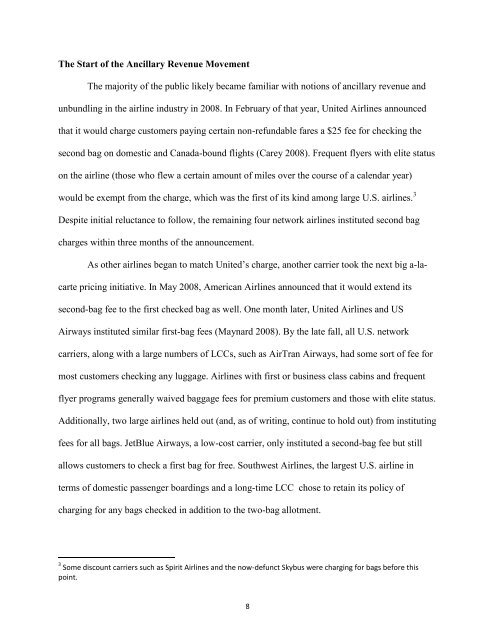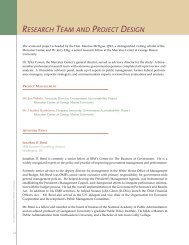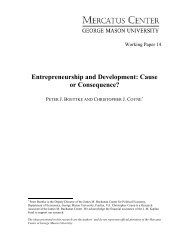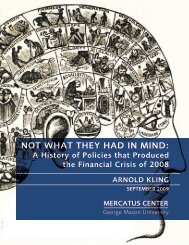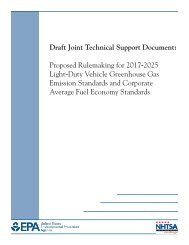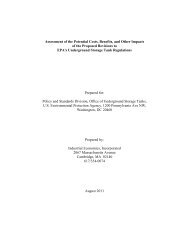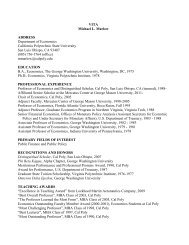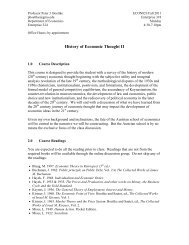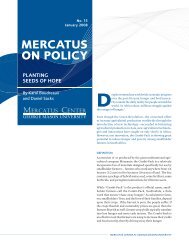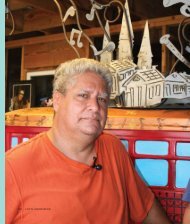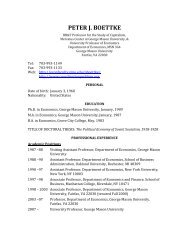A-La-Carte Pricing in the Airline Industry - Graduate Student ...
A-La-Carte Pricing in the Airline Industry - Graduate Student ...
A-La-Carte Pricing in the Airline Industry - Graduate Student ...
You also want an ePaper? Increase the reach of your titles
YUMPU automatically turns print PDFs into web optimized ePapers that Google loves.
The Start of <strong>the</strong> Ancillary Revenue MovementThe majority of <strong>the</strong> public likely became familiar with notions of ancillary revenue andunbundl<strong>in</strong>g <strong>in</strong> <strong>the</strong> airl<strong>in</strong>e <strong>in</strong>dustry <strong>in</strong> 2008. In February of that year, United Airl<strong>in</strong>es announcedthat it would charge customers pay<strong>in</strong>g certa<strong>in</strong> non-refundable fares a $25 fee for check<strong>in</strong>g <strong>the</strong>second bag on domestic and Canada-bound flights (Carey 2008). Frequent flyers with elite statuson <strong>the</strong> airl<strong>in</strong>e (those who flew a certa<strong>in</strong> amount of miles over <strong>the</strong> course of a calendar year)would be exempt from <strong>the</strong> charge, which was <strong>the</strong> first of its k<strong>in</strong>d among large U.S. airl<strong>in</strong>es. 3Despite <strong>in</strong>itial reluctance to follow, <strong>the</strong> rema<strong>in</strong><strong>in</strong>g four network airl<strong>in</strong>es <strong>in</strong>stituted second bagcharges with<strong>in</strong> three months of <strong>the</strong> announcement.As o<strong>the</strong>r airl<strong>in</strong>es began to match United‘s charge, ano<strong>the</strong>r carrier took <strong>the</strong> next big a-lacartepric<strong>in</strong>g <strong>in</strong>itiative. In May 2008, American Airl<strong>in</strong>es announced that it would extend itssecond-bag fee to <strong>the</strong> first checked bag as well. One month later, United Airl<strong>in</strong>es and USAirways <strong>in</strong>stituted similar first-bag fees (Maynard 2008). By <strong>the</strong> late fall, all U.S. networkcarriers, along with a large numbers of LCCs, such as AirTran Airways, had some sort of fee formost customers check<strong>in</strong>g any luggage. Airl<strong>in</strong>es with first or bus<strong>in</strong>ess class cab<strong>in</strong>s and frequentflyer programs generally waived baggage fees for premium customers and those with elite status.Additionally, two large airl<strong>in</strong>es held out (and, as of writ<strong>in</strong>g, cont<strong>in</strong>ue to hold out) from <strong>in</strong>stitut<strong>in</strong>gfees for all bags. JetBlue Airways, a low-cost carrier, only <strong>in</strong>stituted a second-bag fee but stillallows customers to check a first bag for free. Southwest Airl<strong>in</strong>es, <strong>the</strong> largest U.S. airl<strong>in</strong>e <strong>in</strong>terms of domestic passenger board<strong>in</strong>gs and a long-time LCC chose to reta<strong>in</strong> its policy ofcharg<strong>in</strong>g for any bags checked <strong>in</strong> addition to <strong>the</strong> two-bag allotment.3 Some discount carriers such as Spirit Airl<strong>in</strong>es and <strong>the</strong> now-defunct Skybus were charg<strong>in</strong>g for bags before thispo<strong>in</strong>t.8


